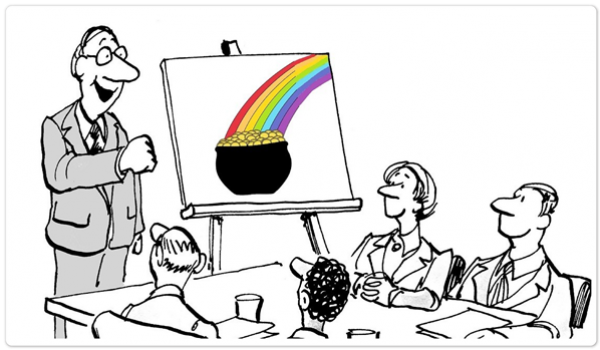View all of our courses and services
on findcourses.com
Sign up for free mini-courses
at our eLearning school
View all of our courses and services
on findcourses.com
Sign up for free mini-courses
at our eLearning school

Words matter. Their meaning has an impact on how we live and work. For example...
Do the words “creativity” and “innovation” mean the same thing, or something different? Do “entrepreneur” and “innovator” mean the same thing, or something different?
The blurring between creativity and innovation has caused all sorts of headaches. Leaders and managers have often feared “unleashing creativity” in their organizations because it might cause a loss of focus, reduced productivity, and overall chaos. Making the clear distinction between “creativity” as coming up with new, original ideas, and “innovation” as implementing creative ideas to produce a positive benefit helps a lot. “Unleashing creativity" can unleash a flood of new ideas. "Unleashing innovation” has its own potency, being focused on actually producing value and benefit.
Is it similarly valuable to distinguish between entrepreneurs and innovators?
To explore this question, let’s first look at 5 kinds of aims/results for innovative initiatives. A person could be an “innovator” who pursues and achieves any of these 5 kinds of goals:
Now, what about an entrepreneur? The Merriam-Webster dictionary defines an entrepreneur as “one who organizes, manages, and assumes the risks of a business or enterprise.” An entrepreneur is often a founder of a business, and/or a leading member of an entrepreneurial team who, together, “organize, manage, and assume the risks of a business or enterprise.”
There are books and consultants who seem to say that a true innovator demonstrates entrepreneurial skills, and a true entrepreneur must be an innovator. For example, a self-assessment tool that labels a person as high or low as an innovator might include items about how well they have built businesses.
Similar to the notion that “being creative is necessary but insufficient for being innovative,” I propose that “being an innovator is necessary but insufficient for being an entrepreneur.” When we talk about what it takes to be an innovator, it’s not the same set of attributes and skills as it takes to be an entrepreneur. Yes, there are overlaps, but there are crucial differences.
If we are loose in our language – saying that innovators need to have the same attributes and skills as entrepreneurs, we do a disservice to all the innovators who are producing various kinds of results but who aren’t the people who would found and run a full business.
For example, suppose we have an assessment to measure people on the attributes and skills it takes to run an innovative business – people whose performance can be measured by business growth rates, profits, ROI, and other such metrics. But if we label that assessment as measuring whether the person is an “innovator,” many people who are true innovators could score low and not reflect their innovative talents.
So, let’s follow the lead of “creative vs. innovative” – and clearly make a distinction between the skills and attributes for being an entrepreneur vs. being an innovator.